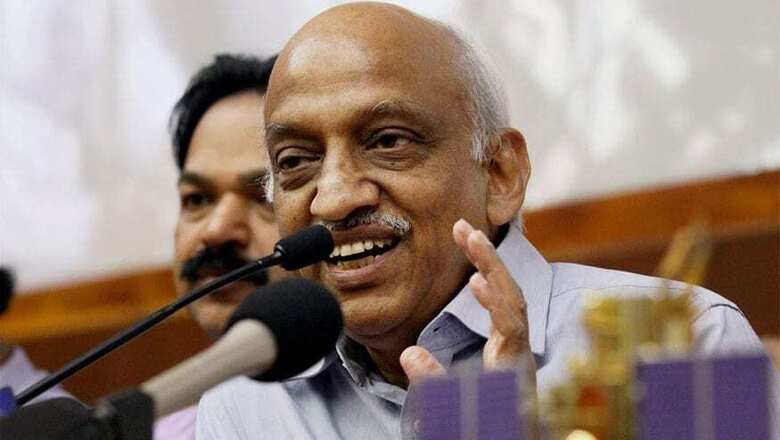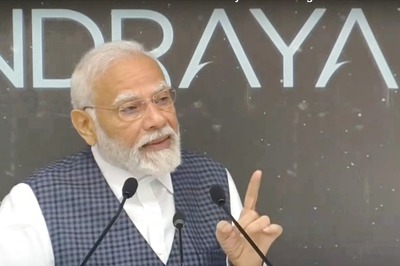
views
ISRO chief AS Kiran Kumar last month confirmed that the state-run space agency is planning to privatise its operations for the Polar Satellite Launch Vehicle (PSLV) by 2020. To build upon this, ISRO is in talks with various private players and is looking to form a strategy to manage the PSLV programs on an end-to-end basis. “We have done one round of discussion with various entities; now we have to establish a procedure and go through government processes. By 2020, we wish to launch PSLV through a joint venture where ISRO and private industries would be working together," Kumar told Geospatial Media in an exclusive interaction. As mentioned by the ISRO chief, the prospect of a joint venture to be set up by ISRO in order to manufacture the PSLV itself also looks promising.
Considered to be one of the most reliable and cost-effective satellite launch vehicles, the PSLV has had 41 missions till date and an impressive success ratio of 39-2. This makes the PSLV a highly anticipated option for most of the space agencies. The integration and the launch of the PSLV will be managed by an industrial alliance through Antrix Corporation, ISRO’s commercial entity. As of now, the regulatory clearances required by ISRO to go through with this proposal are under process. Once the clearances are provided, the proposal would be even more attractive for private space players.
News18.com Presents Tech and Auto Awards 2017 | Vote For Your Favourite Smartphone, Car, Two-Wheeler And More!
Pros and Cons
Giving away the space business to a private player is a huge deal. So how do we weigh the pros and cons of the entire idea? ISRO chief explained how the rest of the world is shifting towards this trend. “This is the trend globally and we should not be left behind. If you look at the current scenario and compare it with just five years, the environment in the country vis a vis awareness and interest about space programs have seen a drastic change." He revealed that the private space firms have shown interest in the Indian space programs while a few of them have even shown interest in their own PSLVs.
Another plus side would be the transfer of responsibility. With the manufacturing and launching of the rockets being handled by the private sector, ISRO aims to shift its focus towards more cutting-edge missions and achieve its goals. “Our current strength is around 16,000 people, which is not enough to achieve the throughput we have aimed at. We need the help of industry players to achieve our goals," said Kiran Kumar.
Kumar displayed his confidence in the currently nascent private space industry in India, stressing that the opportunities for such services will open up in neighbouring countries as well, in addition to India. “This is all going to happen in the coming days. We are coming up with new approaches for that," Kumar said.
News18.com Presents Tech and Auto Awards 2017 | Smartphone of Year: Samsung Galaxy S8 or iPhone 8 Plus? Vote And Win
ISRO is even helping out entrepreneurs to come up with applications for various space programs. For this, the space agency has set up outreach centre in Hyderabad, wherein, it has made available all of its raw data and computational facilities. “As long as they don’t take out the raw data from there, an entrepreneur has access to all the data to come out with their products," Kumar said.
A common question, that whether or not it is a risk to let private players to enter the space business was answered calmly by the ISRO chief: “Space business is full of risks. Every time we launch, there is a risk."
Watch: Motorola Moto X4 First Look | The Improved Moto G5s Plus




















Comments
0 comment